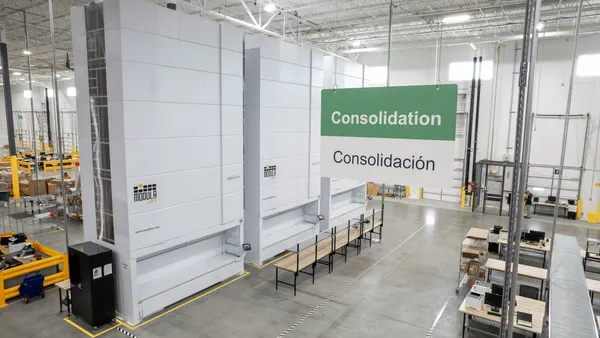Dive Brief:
- Amazon is looking to expand its healthcare supply chain business to become a major supplier for U.S. hospitals and outpatient clinics, The Wall Street Journal reported.
- The Seattle-based tech giant is in the middle of a pilot program with a large Midwestern hospital system using Amazon Business, its business-to-business marketplace, to fulfill supplies for about 150 outpatient facilities, according to the report.
- In addition, Walgreens has approached pharmaceutical and healthcare supply company AmerisourceBergen to purchase portions of the company Walgreens doesn't currently own, WSJ reported separately.
Dive Insight:
Slowly, the healthcare industry is learning how Amazon's healthcare intentions are shaping up.
Late last month, Amazon announced it would partner with J.P. Morgan and Berkshire Hathaway to tackle healthcare costs for their employees. The deal was sparse in details but the companies said the new entity would rely on technology and transparency.
An Amazon official told the WSJ it is looking to build out a "marketplace concept" as a seller for hospitals and other provider customers. This type of organization would differ from the traditional distributor/manufacturer contract model.
"Our goal is to be something new," Chris Holt, leader of global healthcare at Amazon Business told the paper.
"We’ve been actively building out new capabilities and features,” to simplify purchasing, he said.
The company recently sent employees to an unnamed large Midwestern hospital system with roughly 150 outpatient clinics, according to the report, citing a hospital administrator overseeing the effort.
The report comes as payers are pushing patients to low acuity settings and hospital and other providers are building out outpatient access points in their portfolios.
Targeting hospitals and outpatient clinics is a smart move, and could lock in a diverse customer base. Both outpatient clinics and hospitals require a similar set of medical supplies and Amazon has a reputation of disruption.
Looking even further out, a marketplace model could be built out to large medical devices for large hospital systems. Another prospect could be hospitals selling devices they no longer use to other providers, creating a native business-to-business provider marketplace.













